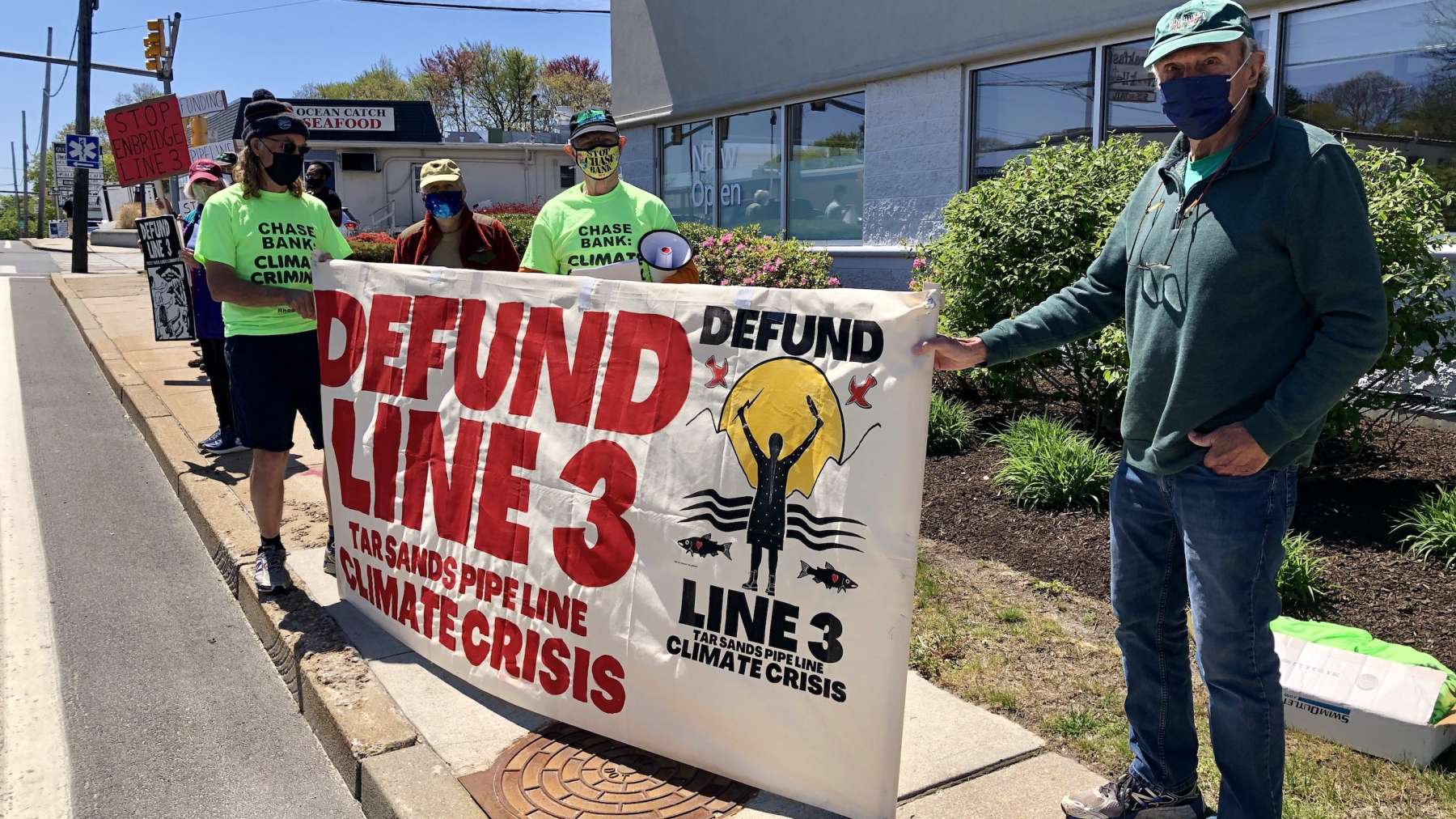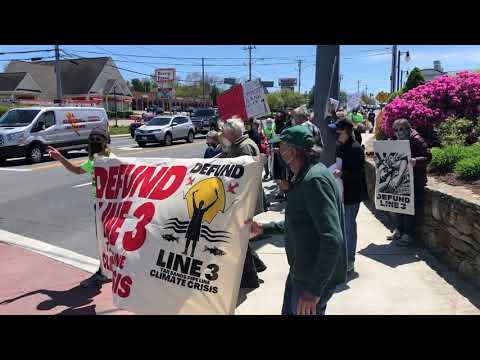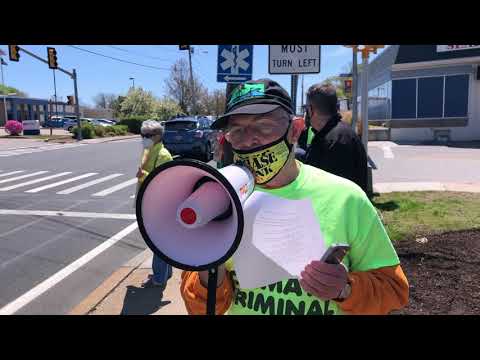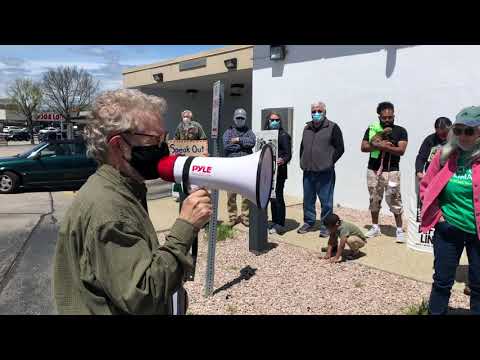Climate Action RI joins national day of action demanding Chase and Bank of America divest from fossil fuels
“Line 3 would result in as much additional greenhouse gas being released into the atmosphere, as the building of 50 new coal-fired power plants. To build a huge pipeline running right through the lands of indigenous peoples in order to deliver twice as much filthy tar sands oil as before at the same time the scientific community says all of our well-being depends on the very quick and very dramatic worldwide reduction of greenhouse gas emissions is dangerous, immoral, and stupid.”
May 7, 2021, 4:19 pm
By Steve Ahlquist
In coordination with similar protests across the United States and the world, Climate Action Rhode Island (CARI) held a protest outside Chase Bank in South Kingstown on Friday afternoon, before marching up Kingstown Road to protest outside the Bank of America location on Old Tower Hill Road. Around three dozen people participated, holding signs, making noise and handing flyers to passing motorists.
At each location CARI organizer Brian Wilder led a small group into the bank branch to present the bank managers with a letter addressed to Chase CEO Jamie Dimon calling on Chase to stop its funding of the Line 3 pipeline and to Bank of America CEO Brian Moynihan. At Chase Bank the management accepted the letter and promised to send it up the chain of command. Bank of America responded by preventing the CARI activists from entering the bank, and closing a metal gate.
CARI has been outside this bank branch before, as well as other Chase Bank branches throughout the state, and they have no plans to stop their protests.

The protests aim to pressure banks to stop funding the Line 3 tar sands pipeline which locks us into decades more of fossil fuel infrastructure. Bank of America is another major funder of the Line 3 builder. The #DefundLine3 Global Day of Action was organized internationally by Stop the Money Pipeline. Protests were held at bank branches in Japan, Switzerland, Sierra Leone, Costa Rica, the UK, Holland, France and Canada, as well as about 85 actions in 50 cities in the United States. Stop the Money Pipeline is a coalition of over 150 organizations focused on holding the financial backers of climate chaos accountable.
The global day of action comes just one month after many of the target banks agreed to give Enbridge – the company building Line 3 – a “sustainability-linked” loan. The details of what makes the loan “sustainability-linked” have not been disclosed. According to Enbridge’s Environmental Impact Statement, Line 3 would result in an additional 193 million tons of greenhouse gas being released into the atmosphere each year. Key permits for the pipeline were granted to Enbridge by the Trump Administration weeks before Trump left office.
Peter Nightingale, a South Kingstown resident said, in a statement, “Line 3 would result in as much additional greenhouse gas being released into the atmosphere, as the building of 50 new coal-fired power plants. To build a huge pipeline running right through the lands of indigenous peoples in order to deliver twice as much filthy tar sands oil as before at the same time the scientific community says all of our well-being depends on the very quick and very dramatic worldwide reduction of greenhouse gas emissions is dangerous, immoral, and stupid.”
More than 250 people have now been arrested for taking action to stop the construction of Line 3. Since the #DefundLine3 campaign launched in February 2021, there have been protests at bank branches in 16 states and activists have sent more than 700,000 emails and 7,000 calendar invites to bank executives and made more than 3,000 phone calls, demanding that they stop funding Line 3.
Line 3 would carry one million barrels per day of Canadian tar sands oil, one of the most polluting fossil fuels, to the shores of Lake Superior in Wisconsin with many negative impacts, especially on indigenous people. On its way, for example, it would cross the territory of the Anishinaabe, putting at risk their streams and almost 1,000 acres of their wetlands. Line 3 would also violate the treaty and property rights of other indigenous people such as the Bad River Band, and the White Earth and Red Lake bands of the Ojibwe people, all of whom are opposing Line 3 in court and at the construction sites.






Peter Nightingale 

















